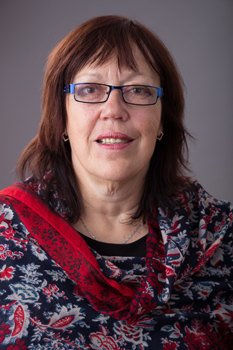
Daniela Vitaskova
Living and working in the UNESCO World Heritage city of Trebic, Czech Republic, Daniela Vitaskova often teaches history by taking her students to historical sites. As one of 25 teachers chosen to travel to Poland to attend the Auschwitz: The Past is Present professional development program in January, Vitaskova will prepare herself to take her students to Auschwitz later next year.
The Auschwitz: The Past is Present professional development program is led by USC Shoah Foundation and Discovery Education to commemorate the 70th anniversary of the liberation of Auschwitz. The educators from 11 different countries representing four continents will attend a four-day workshop designed to deepen their understanding of the historical landscape of Poland before, during and after the Holocaust and increase participant knowledge of authentic sites including Auschwitz-Birkenau.
Vitaskova has taught high school for 32 years and also teaches courses relating to economy and tourism at the Academy of Commerce and Hotel in Trebic. Trebic is home to the world-famous Jewish Quarter and St. Procopius Basilica, which inspired Vitaskova to learn more about the “people and their fates” that were affected by the Holocaust.
Vitaskova took her students to the Terezin Memorial last spring and plans to take them to Auschwitz in April 2015. She said the Past is Present program will allow her to pass on what she learns to her students in preparation for their trip.
Through testimony in the Visual History Archive, she believes students learn historical facts in an interesting way, and they learn that history happened to real people just like them.
“They realise that this injustice was made to men and women, who were part of families, families very similar to their own,” she said. “I think that these testimonies touch their mind and through emotions the students better remember historical events.”
It is important to teach students about the Holocaust so they understand the dangers of judging and persecuting people according to race, as Nazi Germany did through the Nuremberg Laws and other policies, Vitaskova said.
“I think that for them it is important to learn that each human being should be respected,” Vitaskova said. “And it is important to know that we have to be careful and [not let] other people manipulate us to do what they want us to do. It is necessary to think.”